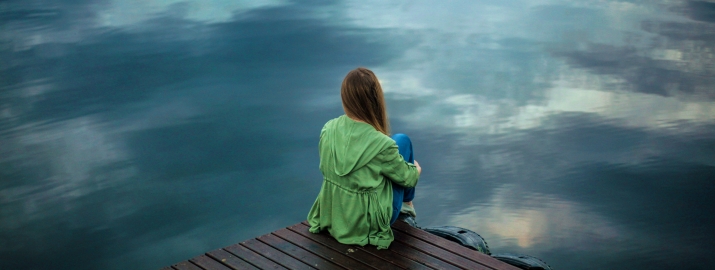
Hodophobia: The Fear of Traveling
Table of Contents
Experts say that fear is not a bad thing when it runs its course. Biologically, it allows us to react generally to disasters, violence, or accidents. On the other hand, phobias cause us to feel an excessive and irrational fear. Irrational fear is felt, even under typical and non-hazardous situations. Phobias can cause severe anxiety disorder with an extreme fear of objects or situations.
In this blog post, we will cover hodophobia, the phobia of traveling. We’ll have a look at its causes, symptoms, and ways to cope. If you suffer from hodophobia, continue reading. This article will tell you how you can improve your quality of life and deal with your travel fears.
Important: Please note that we’re not experts or health professionals. If you suffer from a phobia, you’d better seek professional assistance as stated throughout the article.
What Is Hodophobia?
A type of phobia, hodophobia goes far beyond worrying at the thought of traveling and is a type of anxiety disorder. For example, even thinking about going on a trip or talking about travel makes one feel in danger. Also, remembering a trip or even thinking about trying it creates intense fear.
Hodophobia emerges in different forms and stages due to the experiences people have. For some people, their fears arise when making travel plans. Sometimes they are felt when returning home after a bad travel experience. Although they are safe, remembering that journey can increase one's fears.
Hodophobia can affect and limit a person's daily life. For example, people with hodophobia cannot visit loved ones or attend important events, let alone traveling.
Fear of Travel Phobia vs. Travel Anxiety
Phobias affect the flow of daily life. This is where the difference between travel phobia and travel anxiety arises. Travel phobia interferes with people’s daily life and restricts their everyday life.
A phobia includes an irrational and extraordinary fear. This fear is not proportional to the danger to be experienced. People with phobias know that the fear they feel is meaningless and excessive. For example, travel phobia occurs even when you are in a safe environment and just thinking about travel. People with phobias believe in the reality of this fear and danger, even though they know it is irrational.
In addition, even people who do not have a travel phobia can have travel anxiety. Travel anxiety can arise due to epidemics, increased terrorist incidents, or natural disasters.
Things to note:
For example, the COVID-19 epidemic has shaken the world in recent years and has caused many people to experience travel anxiety. Traveling on public transport has drastically decreased due to fear of contracting the virus. Quarantine at the destination, viral scans, flight cancellations, and uncertainties increased travel anxiety. At the same time, increased deaths and prolonged quarantines due to COVID-19 triggered people's fear of contracting the virus in a different country. Therefore, it increased travel anxiety considerably, if not the travel phobia.
Symptoms of Hodophobia
Phobias or extreme anxiety responses trigger the body. The body gives physical answers through biological changes. For example, blood pressure and heart rate increase when a phobia stimulates the body. Along with this, changes occur in the brain and stress hormones.
Below are some of the psychological and physical symptoms of travel phobia in the human body:
- Dizziness, feeling faint and light-headed
- Chest tightness and pain
- Increased heart rate and palpitations
- Sweating
- Shortness of breath
- Vomiting, diarrhea, and nausea
- Shaking
- Cold and hot flashes
- Feeling confused and overwhelmed with travel plans
- The feeling of danger about travel
As the fear becomes overwhelming, panic attacks can occur alongside the physical symptoms.
Diagnosis of Hodophobia
If you think you have a travel phobia, you can’t decide with a single test. You should seek medical advice and consult a psychiatrist or psychologist for a formal diagnosis.
Hodophobia usually develops during adulthood. Also, if you have different phobias, they can increase your phobia of travel, such as aviophobia or fear of flying.
There are specific criteria for the diagnosis of hodophobia, such as:
- The thought or possibility of traveling causes immediate fear
- Exaggerated and disproportionate fear arises
- The fear of traveling is consistent and lasts for more than six months.
It’s true that hodophobia disrupts one’s professional and social life.
How to be a better traveler
Causes of Hodophobia
Some specific factors cause hodophobia. We’ve listed the most common ones below:
#1
Learning From Others
Some people inherit their phobias and fears from other people. For example, individuals with a family fear of traveling may develop phobias while growing up with this fear.
#2
A Traumatic Experience
Even if a person is in a safe area after experiencing a significant and traumatic event while traveling, this can affect their ability to travel and cause hodophobia to develop.
#3
Genetic
The reasons for the development of phobia can be genetic. If someone else in your family has hodophia, you may end up having it too
#4
Experiences of Others
Learning or reading about travel traumas or dangerous situations experienced by others can also create phobias. For example, that person may develop hodophobia after learning about a hazardous event that someone else had while traveling.
How To Cope With Hodophobia
The best way to deal with hodophobia is to consult a mental health professional, namely a psychologist or psychiatrist.
You can reduce the impact of hodophobia on your own by making strategic plans instead of avoiding travel and living in fear.
Here are ways to deal with the fear of travel:
- You can accustom yourself to long distances by taking short trips to areas near your home that will not trigger your phobia.
- Plan your itinerary in detail. In this way, knowing the details of what you will experience can relax you.
- Avoid traveling alone. Traveling with someone you love and are close to can be comforting.
- If you're traveling by plane, you can often take short, direct flights to get used to traveling.
- Avoid alcohol, drugs, and caffeine. Taking pills and alcohol while traveling for instant relief can make you feel worse. In addition, caffeine is a stimulant that affects anxiety. Therefore, you can also reduce the consumption of tea and coffee.
- Take time to listen while traveling, and don't forget to drink water. Dehydration and fatigue can challenge you as you face your fears.
- Try to visualize every moment of your trip. Imagining and visualizing each step of the journey in your mind makes it easier to adapt.
- Watching GoPro tours online or previewing your destinations in virtual reality will also help you be prepared.
- Regular breathing exercises are helpful when you are anxious. It will take five deep breaths and calm you down when you have worrying thoughts about travel. Also, if you close your eyes while breathing in, you can shift your focus to your body and yourself.
The Bottom Line
There you have it. As we’ve explained, getting professional help is essential if you think you have hodophobia. Once you consult a psychiatrist or psychologist, you’ll take a step to cure your fears and travel comfortably.

